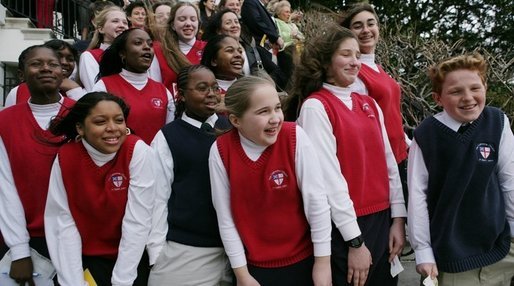GUEST BLOG: School choice for me, but not thee: Pt. 4
The following blog by Dr. James Shuls first appeared on showmeinstitute.org and is reprinted here with permission
 Over the past two posts, I have discussed reservations some parents have expressed about school choice programs. First, I examined whether school choice programs hurt traditional public schools. Next I discussed the trade-off of moving from a democratically controlled school system to one that is controlled by choice. Today, I’m addressing a concern shared by many parents in focus groups I conducted in Saint Louis and Kansas City. This one focuses on private schools themselves.
Over the past two posts, I have discussed reservations some parents have expressed about school choice programs. First, I examined whether school choice programs hurt traditional public schools. Next I discussed the trade-off of moving from a democratically controlled school system to one that is controlled by choice. Today, I’m addressing a concern shared by many parents in focus groups I conducted in Saint Louis and Kansas City. This one focuses on private schools themselves.
Reservation Number 3: School choice may lower the quality of private schools
The argument goes something like this: the children who can’t afford to attend private school would bring the “problems of poverty” with them into whatever school they attend. The schools would get worse as a result. Tuition-paying families would leave. And on and on and on…
There are several problems with this argument. First, we should acknowledge that this response sounds really tone-deaf to the single mother living in poverty who wants a great education for her child. How many amazing figures from American history were born into poverty only to excel in school; Ben Carson and Supreme Court Justice Clarence Thomas are two that quickly come to mind. One of the first lessons we learn in Kindergarten is to never judge a book by its cover. We should give the benefit of the doubt to families who are working hard to find better schooling options for their kids.
Second, we have to recognize that this belief betrays a low opinion of private schools. It suggests that the schools are not good because of the effectiveness of the staff, the value of the school’s mission, or the innovativeness of the school’s curriculum. Rather, this line of thinking suggests a private school is only as good as the students who go there. In other words, the school would be no better than the surrounding public schools if they were forced to take all students. Is that what private-school parents really think about their schools? If so, they may want to reconsider their schooling decision.
Third, and in contrast to that argument, many private schools have a long and proud tradition of educating low-income and minority students. Moreover, they have been quite successful at it. Indeed, research suggests urban minorities are among the greatest beneficiaries of Catholic schooling.
To summarize, it is understandable for parents with kids in high-performing private schools to be concerned about the impact of a private school choice program. Yet, concerns about “dumbing down” private schools are often overblown. Moreover, we mustn’t forget that they get to choose whether they will accept any students at all! They don’t have to participate.
For policymakers, it is important to understand this dynamic when designing programs and when speaking with constituents. It is also important to remember public policies should not be designed to protect the privileged. Good public policy should attempt to enhance freedom, encourage individual responsibility, and improve outcomes for citizens. School choice accomplishes all of these goals.
 James Shuls
James Shuls
Distinguished Fellow of Education Policy
James V. Shuls is an assistant professor of educational leadership and policy studies at the University of Missouri–St. Louis and Distinguished Fellow in Education Policy at the Show-Me Institute.
More About this Author
« Previous Post: GUEST BLOG: School choice for me, but not thee: Pt. 3
» Next Post: Normandy to seek reaccreditation despite low academic performance